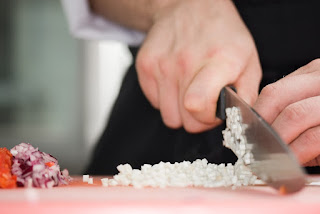Drug and alcohol use is quite common in the service industry. People who work in the field, at restaurants or bars, for example, know first-hand that many of their co-workers have dabbled in or abused narcotics. It’s not uncommon for people to work while under the influence, bartenders sampling their inventory, wait-staff seeking a little extra pep in their step. That’s not to say that other lines of work don’t have similar rates of use, or in some far more significant problems; but, the service industry’s relationship with drugs and alcohol is noteworthy.
If you have ever worked in the field, you are aware that once a shift is over some employees will congregate after hours and “tie one on.” The use of alcohol, marijuana, and cocaine are staples in those circumstances; a behavior which can and has led to dependence and addiction. People who manage employees in the industry, in many cases, know that some of their employees have use disorders. However, as long as those individuals show up and do their job, few discussions are ever had regarding the self-destructive course their staff member is heading down.
 What’s more, only a small number of restaurants and bars conduct random drug screens on their employees. The establishments that do have drug policies exercise the practice of drug testing employees rarely. Meaning, when it comes to alcohol and substance use disorder in the workplace, a don’t-ask-don’t-tell approach is taken. In spite of the fact that talking to a co-worker about concerns over substance use could be beneficial to the individual and the business.
What’s more, only a small number of restaurants and bars conduct random drug screens on their employees. The establishments that do have drug policies exercise the practice of drug testing employees rarely. Meaning, when it comes to alcohol and substance use disorder in the workplace, a don’t-ask-don’t-tell approach is taken. In spite of the fact that talking to a co-worker about concerns over substance use could be beneficial to the individual and the business.
In Restaurants, Cocaine is Everywhere
Despite the fact that opioids continue to be the primary focus of addiction discussions these days, cocaine is still a considerable issue in the United States and Europe. Of the top-five most significant cocaine consuming countries: Scotland, England, Wales, and the U.S. lay claim to four of the available slots. Albania takes the prize for the highest rate of cocaine consumption, The Telegraph reports. The findings may not be that surprising, excepting Albania, considering that the UK and U.S. are affluent countries and cocaine isn’t cheap.
The first installment of a two-part documentary on the subject matter above aired last night on ITV. Gordon Ramsay on Cocaine was inspired by what the celebrity chef has witnessed in his field. Ramsay lost a dear friend and chef protégé to a cocaine overdose in 2003. Ramsay sought out initially to highlight the impact that cocaine and drug use has on “chefs who think they’re rock stars,” THR reports. He affirms that cocaine is “everywhere” in the industry, and has seen how drugs use has ruined colleagues’ careers.
“I saw cocaine quite early on in my career,” Ramsay tells ITV. “I’ve been served it. I’ve been given it. I’ve had my hand shaken and left with little wraps of foil in it. I’ve been asked to dust cocaine on top of soufflés, to put it on as icing sugar…Coke’s everywhere. It’s spiraling out of control.”
In London alone, Chef Ramsay employees 750 people, according to ITV. Shedding light on how prevalent cocaine use is in the industry and the world-at-large is vitally important. In the documentary, he investigates the criminal business behind the cocaine trade, including cocaine farms, drugs cartels, smugglers, dealers, and users. He points out that cocaine use in Great Britain has risen 400% over the past two decades.
Stimulant Addiction Treatment
If cocaine use has taken over your own life, please seek help immediately. Stimulant addiction is a treatable use disorder and recovery is possible, if you are willing to take steps to achieve the goal. Please contact Hope by The Sea; we can assist you in stopping the cycle of cocaine use disorder and introduce you to the transformative journey of addiction recovery.

